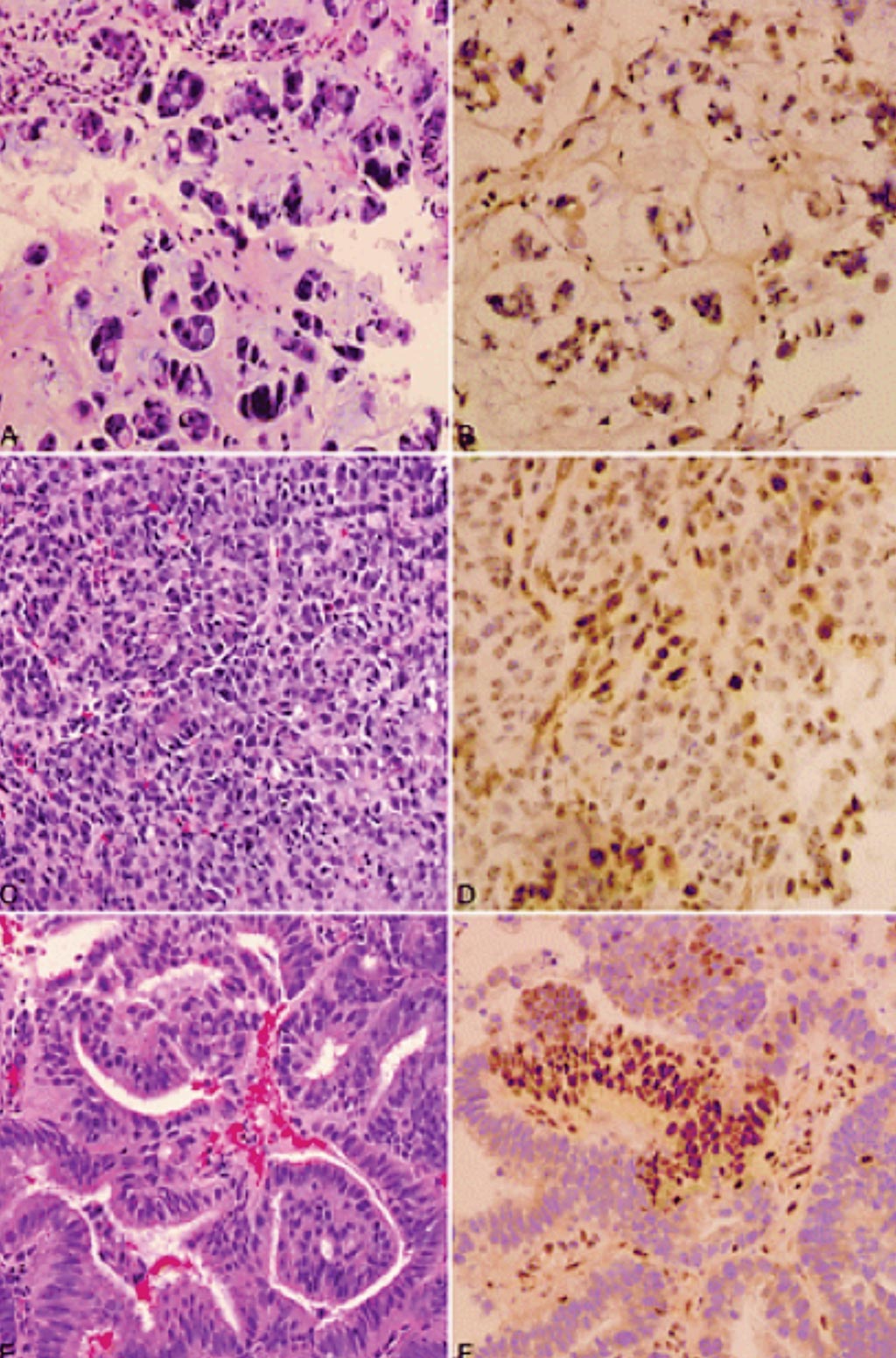Lynch Syndrome Screening by IHC Leads to Mutation Studies
By LabMedica International staff writers
Posted on 24 Oct 2019
Lynch syndrome or hereditary nonpolyposis colorectal cancer is an autosomal dominant genetic condition that is associated with a high risk of colon cancer, as well as other cancers including endometrial cancer, ovary, stomach, small intestine, hepatobiliary tract, upper urinary tract, brain, and skin.Posted on 24 Oct 2019
Immunohistochemical expression of mismatch repair (MMR) protein is a well-accepted method for routine screening for Lynch syndrome (LS) with relatively high sensitivity and specificity. Occasionally, however, immunohistochemistry (IHC) can yield an equivocal result with poor reproducibility and the potential for misdiagnosis.

Image: A and B, Mucinous adenocarcinoma of colon and indeterminate PMS2 immunohistochemistry staining. C and D, Poorly differentiated carcinoma of colon and indeterminate MLH1 staining. E and F, Endometrial carcinoma and focal MSH6 staining (Photo courtesy of University of Texas Southwestern Medical Center).
A pathologist and a geneticist from the University of Texas Southwestern Medical Center (Dallas, TX, USA) retrospectively analyzed the data on MMR (MLH1, PMS2, MSH2, and MSH6) IHC results from their database of 479 patients with colorectal cancer (CRC) and endometrial cancer (EC) who were screened for LS between September 2011 and August 2013. Mismatch repair protein IHC was performed prospectively in all patients with a tissue diagnosis of CRC or EC before 70 and 50 years of age, respectively.
Semi-quantitative scoring of MMR IHC was performed by image analysis in 479 cases, of which 380 were colorectal and 99 endometrial cancers. Scores of 10% or more, less than 10%, and 0% were used as cutoffs for retained, indeterminate, and loss of expression, respectively. Negative and indeterminate IHC results were confirmed by mutational studies. The automated cell imaging system consisted of an automated robotic bright-field microscope module and a Windows NT–based software interface that digitizes the IHC-stained slide, and digital images were displayed on a computer screen and analyzed by proprietary software. Confirmatory germline testing was initiated after counseling the patients about the abnormal IHC results and obtaining their permission for further genetic testing.
The scientists reported that 418/479 cases (87.2%) were reported as retained expression, 45 (9.3%) as loss of expression, and 16 (3.3%) as indeterminate expression. Fifteen of 45 (33.3%) and eight of 16 (50%) with loss and indeterminate expression, respectively, were found to have Lynch syndrome by germline studies. The overall frequency of Lynch syndrome in the patient population was 4.8% (23/479), and 34.7% of these (8/23) were associated with indeterminate IHC expression. In the indeterminate group, MLH1 germline mutation was the most frequent (6/13; 46.2%), followed by MSH6 (4/13; 30.7%).
The authors concluded that their findings provided further evidence that indeterminate IHC should be further investigated for possible MMR germline mutation. Guidelines for interpretation of MMR IHC and the establishment of more objective criteria for defining indeterminate results are important to improve the sensitivity and specificity of the IHC assay. The study was published in the October 2019 issue of the journal Archives of Pathology and Laboratory Medicine.
Related Links:
University of Texas Southwestern Medical Center














